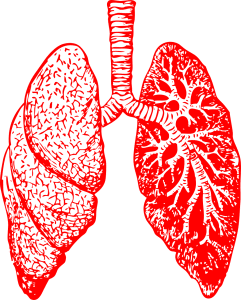According to a story from Bronchiectasis News Today, the results of a new study suggests that bronchiectasis may trigger autoimmune inflammatory disease. The study found that the condition was frequently found in patients with autoimmune problems. More specifically, bronchiectasis was connected to distinct features of the disease, which means that the autoimmune disease could be triggered directly by problems with the respiratory tract.
Bronchiectasis is a disease in which parts of the lung airways are permanently enlarged. The condition can result from several acquired causes, including pneumonia, cystic fibrosis, and tuberculosis. However, in some cases, the cause is unknown, particularly if cystic fibrosis is not present. Symptoms of this condition include a chronic cough, heavy mucus production, chest pain, coughing up blood, and shortness of breath. The condition is normally treated with antibiotics and bronchodilators. In severe cases, a lung transplant may be necessary. To learn more about this disease, click here.
Immune systems problems and bronchiectasis were already known to be associated with one another to some extent. People dealing with inflammation of the blood vessels in conditions such as granulomatosis with polyangiitis (GPA) often have problems with respiration before the blood vessel inflammation is present. Prior research had suggested that people with ANCA associated vasculitis also have bronchiectasis. ANCA is the name of the autoantibody that causes blood vessel inflammation in this conditions. There was no understanding of how the two diseases could impact one another or if they could be related in some way.
In the study, a total of 58 patients were recruited. 28 had GPA and the rest had microscopic polyangiitis (MPA). Sixty-seven percent of the patients has antibodies that attacked the MPO protein and 32 percent had antibodies that attacked the PR3 protein. Of the total number, 22 patients were found to have bronchiectasis and everyone with the condition had anti-MPO antibodies. The researchers also noted that patients with the disease also had more nervous system and movement impairment than those that did not. The patients with bronchiectasis also had more healthy kidney function.
In conclusion, bronchiectasis was linked strongly to the presence of anti-MPO antibodies, female sex, and the age of the person at the time of diagnosis with ANCA vasculitis (either GPA or MPA).








